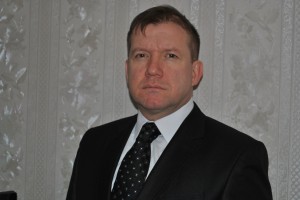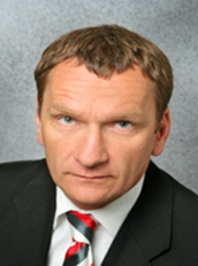 ASTANA – Kazakhstan has attracted more than $180 billion in foreign investment since independence in 1991, mostly in oil and gas. The world’s ninth largest country by territory holds slightly more than 3 percent of the world’s recoverable oil reserves. However, Kazakhstan is also moving beyond fossil fuels and towards alternative energy.
ASTANA – Kazakhstan has attracted more than $180 billion in foreign investment since independence in 1991, mostly in oil and gas. The world’s ninth largest country by territory holds slightly more than 3 percent of the world’s recoverable oil reserves. However, Kazakhstan is also moving beyond fossil fuels and towards alternative energy.
For example, a new solar panel production plant was launched in December 2012. Since its launch on Dec. 25, 2012, the plant, a subsidiary of KazAtomProm, has produced 27,564 photoelectric modules worth two billion tenge (US$13 million) with a 6.4 MW generating capacity. When fully loaded, the plant produces over 300 photoelectric modules a day, according to a representative of KazAtomProm.
International companies are also interested in getting into the solar panel business in Kazakhstan. KB-Enterprises is an international company with headquarters in Astana and offices in North America, the Middle East, Europe and Central Asia. It is one of the few foreign companies capable of building a solar power plant in Kazakhstan.
“With my partner Dr. Kurt Becker who is based in Germany, we are a financial consultancy company that represents investment companies, as well as energy companies,” said KB-Enterprises Managing Director Taylan Karamanli. “We have been operating in Kazakhstan for about one year and we are seeking to boost our operations, create more jobs for Kazakh people, which will educate local people, give them new professions, upgrade their qualifications each year, pay state taxes, employee taxes, contribute into the pension funds. We would like to set up a factory that would produce solar panels eventually.”
One of the challenges of operating in Kazakhstan, says Karamanli, is feeling secure in the country.
“What we want is guarantees from the government. We don’t want financial help, we have the investments. We just want the guarantees, the land and permissions. If only the government could provide that, we could connect to the local network and that is exactly what we need. Other than that, once we have the land and permissions, our engineers will set everything up. Basically, we want our investments to be secure,” he explained.
Another challenge, according to Karamanli, is the “availability of high officials. We need to talk to decision makers and sometimes we get stuck at mid-level management who don’t decide anything.”
“We need to clearly understand who to turn to. That has been our challenge so far, whether for instance, we should turn to the city of Astana or Almaty, or a ministry. We don’t know exactly who to talk to. It is not very clear. I would call these jurisdictional and procedural questions.”
Based on 1 MW photo voltaic (PV) plant, Karamanli outlined some of the outputs of his future projects.
“For independent power supplies, we have designed a 1MW PV power plant with 2MW battery storage capacity and new (or existing) 3 x 400k VA diesel generators. This can cover the consumption of 400 households (1,600 people),” he explained and went very technical. “For this, the total cost is approximately $6 million. Only the PV installation is approximately $2 million per MW. Battery storage is approximately $1 million per MW. For small-scale residential, 4 person household in Germany, for instance, we would need approximately 5kW PV plus 5kWh battery to stay energy independent for approximately eight months (excluding winter months). With the Kazakh winter, I assume that it should be sufficient to cover electricity supply, as well and maybe we will need a 10kWh battery, which costs approximately $20,000. Every kWh of PV can save 0.6 kg of CO2, which is approximately 60-90 kg/m2 installation.”
Part of Karamanli’s success and understanding of the business environment in Kazakhstan results from his knowledge of the local mentality and culture.
“As I live here, I understand the country’s needs. Although the country is rich in oil and gas, and other resources, Kazakhstan still has a deficit of energy. It needs to produce more and more,” he said. “We can talk about Astana as the pearl of Central Asia and an example of a lifetime.”

